The Troubles: Boris Johnson seeks end to 'endless cycle' of prosecutions
- Published
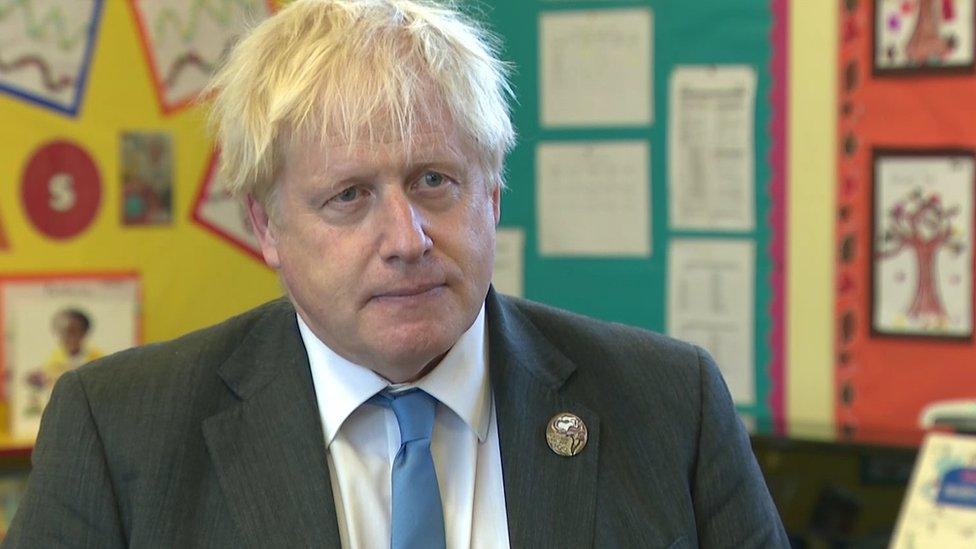
Boris Johnson visited Crumlin Integrated Primary School during his visit to Northern Ireland
Prime Minister Boris Johnson has called for an end to people being brought to court with "no new evidence" over offences relating to Northern Ireland's Troubles.
He was speaking days after the death of former soldier Dennis Hutchings, 80, from Cornwall.
Mr Hutchings died while on trial over a 1974 fatal shooting in County Tyrone.
Prosecutors have said the decision to prosecute Mr Hutchings was in the public interest.
Mr Hutchings had denied attempting to murder and cause grievous bodily harm to John Pat Cunningham, 27, who was shot in the back as he ran from an Army patrol near Benburb, County Tyrone, in 1974.
Earlier this week, Mr Cunningham's family said in a statement that "when the time is judged appropriate" they would "respond in more detail to the issues surrounding the prosecution" of Mr Hutchings.
"We respectfully remind the public of the facts that were pronounced at the trial, which were uncontested," they said
Speaking during a visit to Northern Ireland, Mr Johnson said he wanted to "find a solution that brings people together".
In July, the government announced plans for a statute of limitations which would end all prosecutions related to the Troubles up to April 1998.
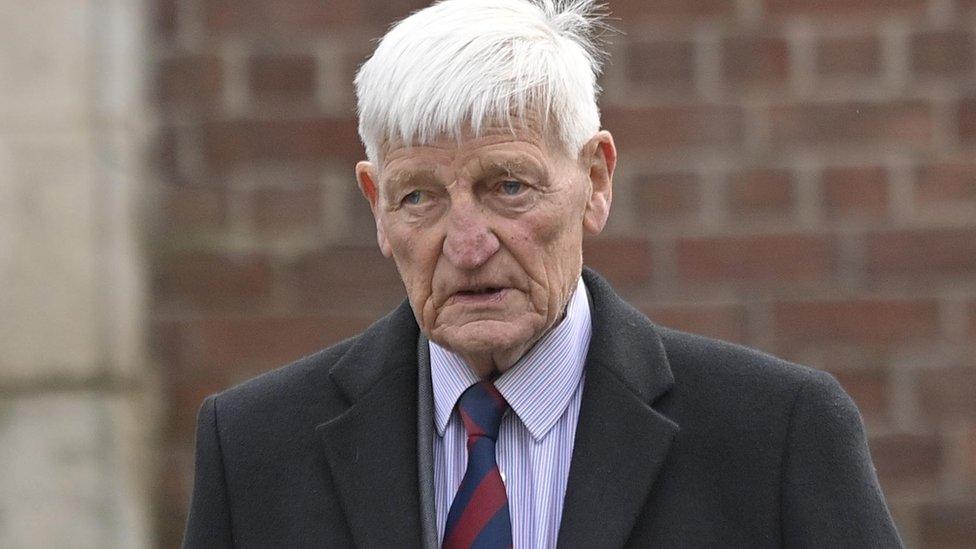
Dennis Hutchings, 80, denied attempting to murder and cause grievous bodily harm to John Pat Cunningham
This would apply to military veterans as well as ex-paramilitaries.
Mr Johnson said on Thursday that the case of Dennis Hutchings was "really tragic".
"I felt very, very sad for him and for all his family because this is the issue that we have been trying to address," he said.
"Now, this particular case started before this government came in so, no matter what we did, we wouldn't have been able to stop that one.
"But what we want to do is to try to tell the story of what has happened in the Troubles and to try to bring as much reconciliation and understanding as possible."
He said he wanted to bring an "end to the endless cycle by which people are being brought to court with no new evidence".
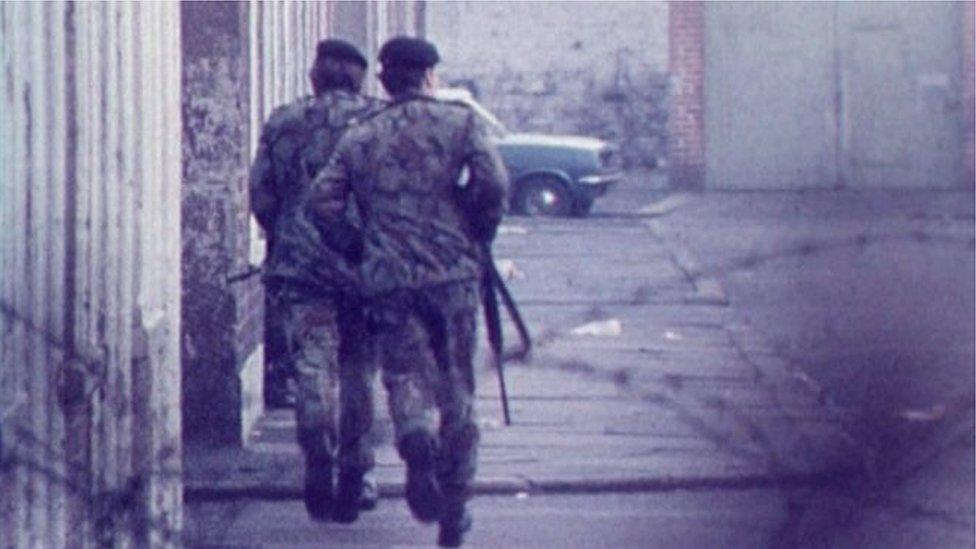
A statute of limitations would end all prosecutions in Troubles-related cases up to April 1998
The government's plans would also end future inquests and civil actions.
The executive parties in Northern Ireland, victims' groups and the Irish government have expressed opposition to the proposals, with some labelling them as a "de-facto amnesty".
In August, a group which represents 200,000 Army veterans who served in Northern Ireland said it fully supported the government's Troubles legacy plan.
Some other military veterans have criticised it.
On Thursday, Mr Johnson was among guests who attended a church service to mark the centenary of partition and the formation of Northern Ireland.
Related topics
- Published14 July 2021

- Published30 August 2021
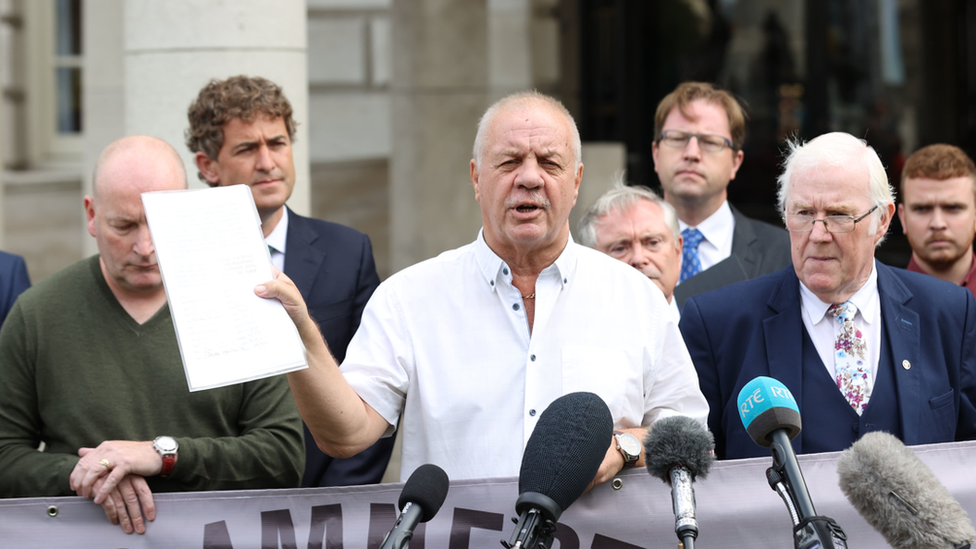
- Published19 October 2021
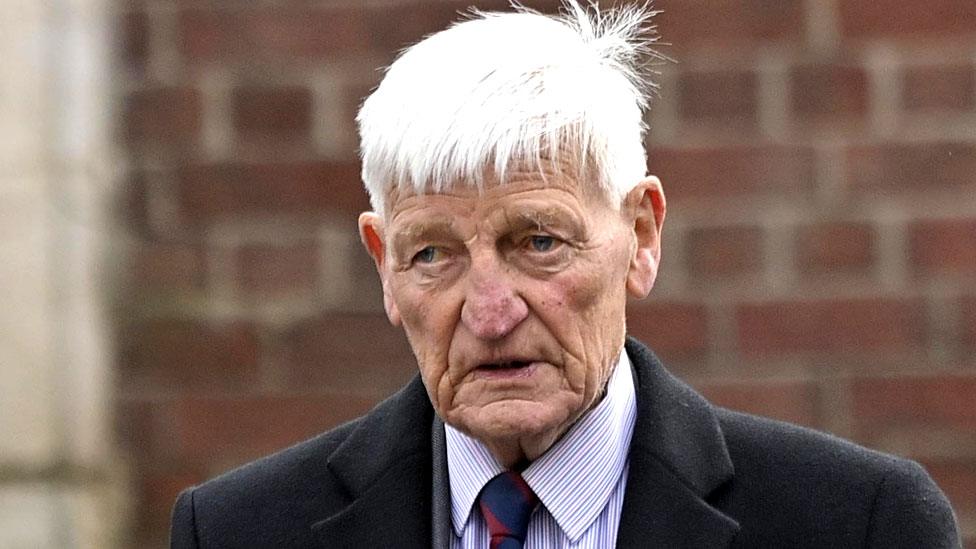
- Published19 October 2021
